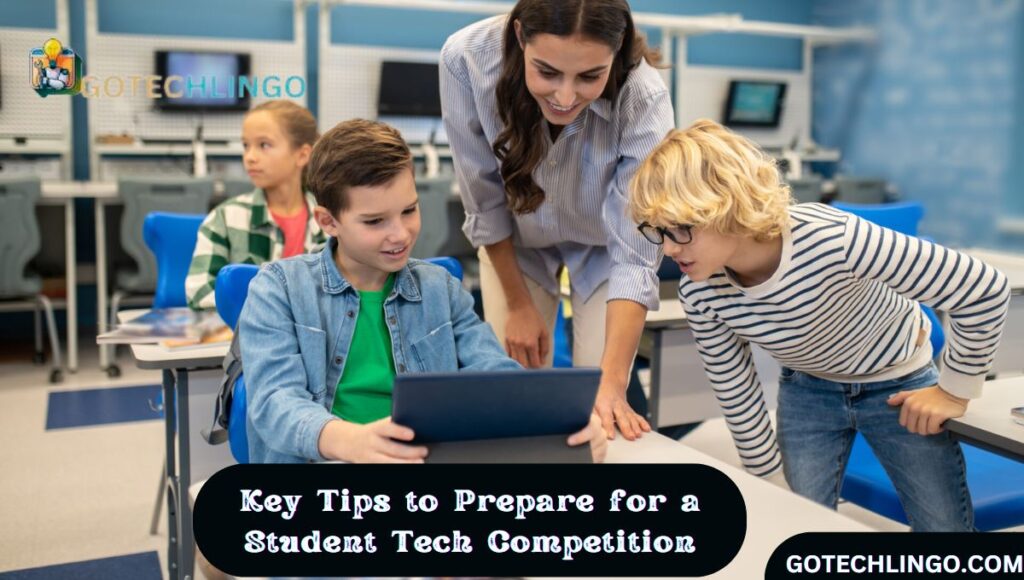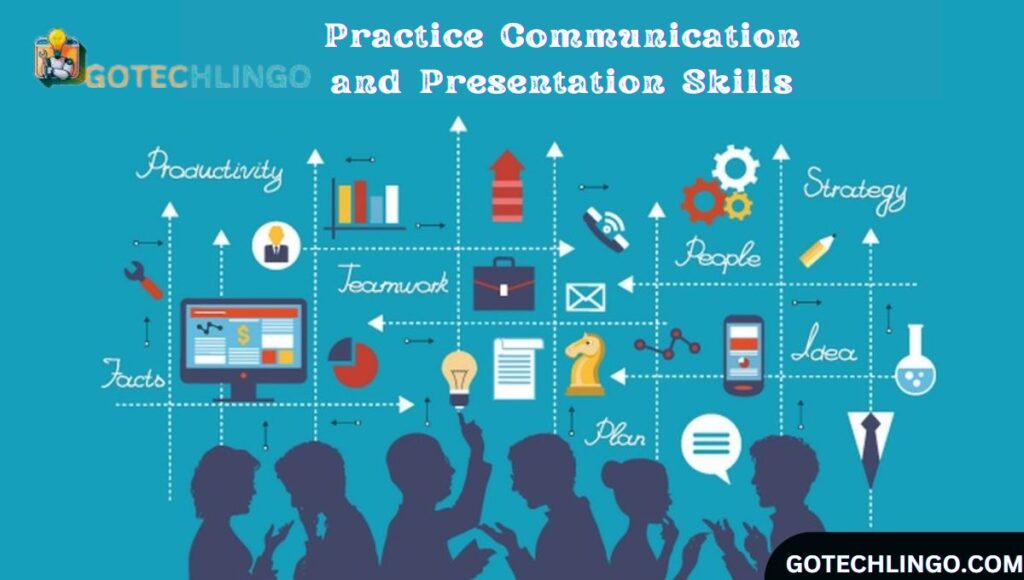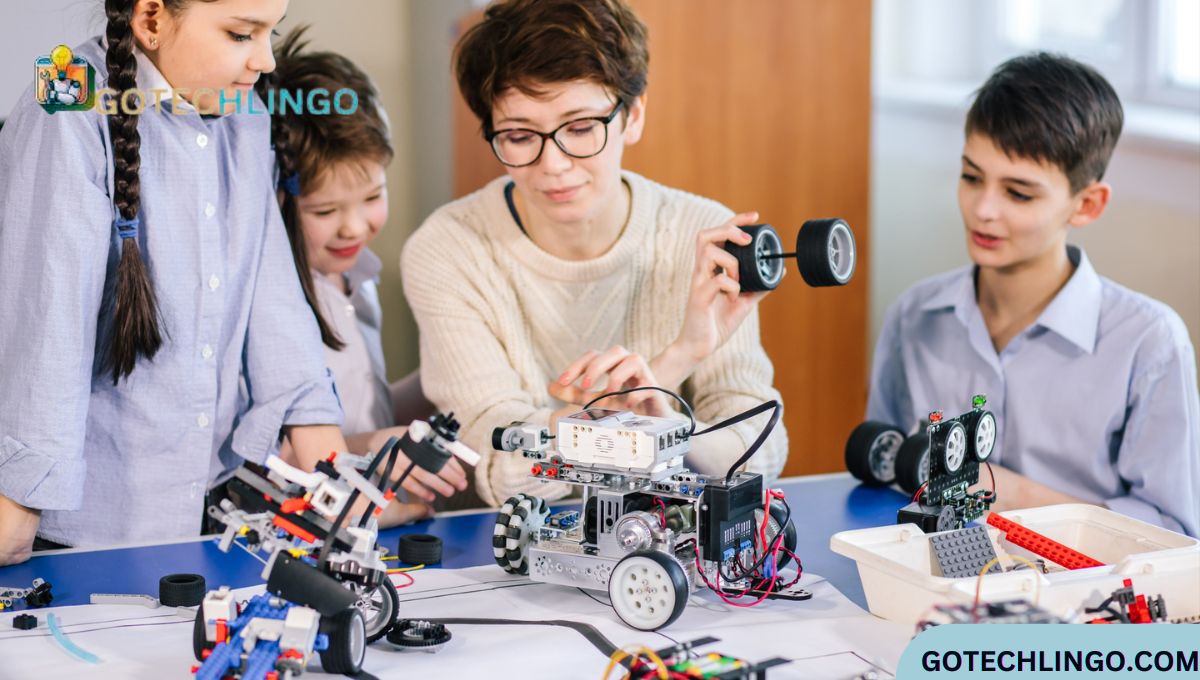What Are Student Tech Competitions?
An Overview of Student Tech Competitions
Student tech competitions are platforms where students showcase their abilities to solve real-world problems using technology.
These events encourage creativity, innovation, and teamwork. By participating, students gain practical experience, enhance their technical skills, and collaborate with like-minded individuals.
Competitions can vary in scope and focus, ranging from software development to robotics and game design. To stay organized and meet competition criteria, participants often use tools like student technology competition presentation planning guides.
These resources help in structuring ideas, refining projects, and preparing impactful presentations.
Why Participate in a Tech Competition?
Participating in tech competitions offers more than just trophies. It’s an opportunity for students to apply theoretical knowledge to practical scenarios, interact with industry leaders, and unlock their potential. Here’s why joining a student tech competition can be transformative:
- Practical Experience: Solve real-world problems using cutting-edge technologies.
- Networking Opportunities: Meet industry professionals, mentors, and like-minded peers.
- Skill Development: Improve technical, analytical, and teamwork skills.
- Career Advancement: Stand out to potential employers with competition accolades.
- Confidence Building: Presenting your work boosts self-confidence and public speaking skills.
Popular Types of Student Tech Competitions
1. Coding Challenges
Coding challenges test programming skills, logic, and problem-solving abilities. Participants must solve problems or create algorithms within a time limit, often focusing on efficiency and accuracy.
Examples:
- Google Code Jam: A global competition with algorithm-based challenges.
- HackerRank Contests: Focused on testing coding and debugging skills.
Key Skills:
- Mastery of programming languages like Python, C++, or Java.
- Understanding of algorithms and data structures.
- Efficient debugging and code optimization techniques.
2. Robotics Competitions
Robotics competitions challenge students to design, build, and program robots to complete specific tasks. These events combine engineering, mechanics, and programming, making them interdisciplinary and highly engaging.
Examples:
- FIRST Robotics Competition: Encourages participants to build robots that compete in various missions.
- VEX Robotics Competition: Focuses on creative solutions using programmable robots.
What You Learn:
- Hands-on experience with engineering and programming tools.
- Collaborative problem-solving in high-pressure environments.
- Practical application of mechanical and software integration.
3. Innovation Hackathons
Hackathons are fast-paced events where participants brainstorm and build prototypes to solve a given problem. They emphasise creativity, teamwork, and rapid prototyping.
Examples:
- TechCrunch Disrupt Hackathon: Focused on creating innovative tech solutions.
- NASA Space Apps Challenge: Invites participants to solve space-related challenges.
Preparation Tips:
- Use a student technology competition presentation planning guide to outline your ideas.
- Prioritise creating a minimal viable product (MVP) to showcase feasibility.
- Focus on innovative and impactful solutions.
4. Cybersecurity Challenges
These competitions focus on identifying vulnerabilities, protecting systems, and responding to simulated cyberattacks. Cybersecurity challenges are crucial in today’s tech-driven world where data security is paramount.
Examples:
- CyberPatriot: Aimed at fostering cybersecurity awareness among students.
- National Cyber League (NCL): Includes both individual and team-based challenges.
Skills Required:
- Knowledge of cryptography, ethical hacking, and network security.
- Proficiency with tools like Wireshark and Metasploit.
- Critical thinking and analytical problem-solving.
5. Game Development Contests
Game development competitions combine storytelling, coding, and design. Participants are tasked with creating engaging video games, often addressing specific themes or goals.
Examples:
- Global Game Jam: Encourages participants to develop games in 48 hours.
- Unity for Humanity Challenge: Focused on games with social impact.
What You Gain:
- Knowledge of game engines like Unity or Unreal.
- Skills in user experience (UX) and interface design.
- Insight into the gaming industry’s creative and technical processes.
Steven Moore Lanier Tech: A Journey of Excellence
Key Tips to Prepare for a Student Tech Competition

1. Understand the Rules and Criteria
Before diving into preparation, thoroughly review the competition’s rules, format, and judging criteria. This knowledge is critical to align your efforts with what judges expect.
- Read Official Guidelines: Many competitions provide a detailed guide outlining project requirements, deadlines, and presentation formats.
- Clarify Doubts Early: If anything is unclear, contact the organisers well in advance.
- Focus on Key Judging Criteria: Pay attention to aspects like innovation, technical feasibility, presentation, and teamwork, as these often carry the most weight.
Example: In coding challenges, writing clean, efficient code might be more important than simply solving the problem.
2. Form a Strong Team
If the competition allows teams, assemble a group with diverse skill sets. A balanced team can leverage individual strengths and tackle tasks more effectively.
- Identify Core Skills: Include members skilled in programming, design, research, and communication.
- Establish Clear Roles: Assign responsibilities to avoid overlapping tasks.
- Maintain Open Communication: Use tools like Slack or Trello to track progress and share updates.
Pro Tip: A team with complementary abilities, such as a coder, a designer, and a strategist, is more likely to succeed.
3. Develop Time Management Skills
Competitions often have tight deadlines. Learning to manage your time effectively ensures you complete all tasks without unnecessary stress.
- Create a Schedule: Break down your tasks into smaller, manageable steps with clear deadlines.
- Prioritise Tasks: Focus on critical elements first, like building a working prototype.
- Practice Under Time Constraints: Simulate the competition environment during practice sessions.
Case Study: In a hackathon, teams that allocate time for brainstorming, coding, and presentation equally often perform better than those who spend all their time coding.
4. Use the Right Tools
The tools you choose can significantly impact your efficiency and output. Invest time in mastering tools relevant to your competition.
- Programming Tools: Use IDEs like Visual Studio Code or PyCharm for coding challenges.
- Design Software: Adobe XD or Figma can help with UI/UX design in game development contests.
- Team Collaboration: Tools like GitHub ensure seamless collaboration on projects.
- Presentation Tools: PowerPoint, Canva, or Prezi can help you create engaging presentations.
Example: A student technology competition presentation planning guide can streamline your workflow by offering structured templates for presenting your project.
5. Practice Problem-Solving
Regular practice sharpens your critical thinking and technical skills. Engage in mock competitions or solve past problems to prepare.
- Participate in Online Challenges: Platforms like LeetCode, HackerRank, and Codeforces provide a wealth of practice problems.
- Join Communities: Online forums and local meetups can help you stay motivated and share insights.
- Learn from Mistakes: Review your solutions to understand what went wrong and how you can improve.
Pro Tip: Dedicate time to both technical and soft skills, as communication is just as crucial as problem-solving in competitions.
Notable Student Tech Competitions Around the World
1. Imagine Cup by Microsoft
The Imagine Cup is one of the most prestigious tech competitions for students worldwide. It encourages participants to build innovative projects addressing global challenges.
- Focus Areas: Artificial intelligence, cloud computing, and social impact.
- Prize: Winners receive cash prizes, mentorship, and the chance to showcase their projects to industry leaders.
Example: Past winners have created solutions for healthcare, education, and environmental challenges using AI and cloud technologies.
2. Intel International Science and Engineering Fair (ISEF)
ISEF is a global competition for pre-college students that highlights groundbreaking research and innovative projects.
- Focus Areas: Science, technology, engineering, and mathematics (STEM).
- Prize: Scholarships, internships, and monetary awards.
Key Fact: ISEF has been a launchpad for many young inventors and researchers who have gone on to achieve significant breakthroughs.
3. Google Science Fair
The Google Science Fair challenges students to solve problems they’re passionate about using scientific methods and technology.
- Age Group: Open to students aged 13–18.
- Prize: Scholarships, gadgets, and mentorship opportunities.
Highlight: A project on water purification won the Grand Prize in a previous year, showcasing how simple ideas can create a massive impact.
4. FIRST Tech Challenge
This robotics competition invites students to design, build, and program robots for specific challenges.
- Focus Areas: Engineering, mechanics, and teamwork.
- Prize: Scholarships and awards.
Pro Tip: Participants often gain hands-on experience with robotics and programming, making this competition a great stepping stone for aspiring engineers.
5. ACM International Collegiate Programming Contest (ICPC)
The ICPC is one of the oldest and most competitive programming contests, drawing participants from universities worldwide.
- Focus Areas: Algorithm design and problem-solving.
- Prize: Cash awards and recognition in the programming community.
Fun Fact: ICPC alumni often land roles at top tech companies like Google, Facebook, and Microsoft.
How to Excel in Student Tech Competitions
Stay Updated with the Latest Trends
Technology evolves rapidly, and staying informed about the latest developments can give you a competitive edge.
- Follow Industry News: Subscribe to blogs, podcasts, or YouTube channels focused on tech innovations.
- Learn Emerging Technologies: Explore trends like artificial intelligence, blockchain, quantum computing, and IoT.
- Join Forums and Communities: Platforms like Reddit, GitHub, and Stack Overflow provide insights and discussions on cutting-edge topics.
Example: A competitor using AI tools like ChatGPT to streamline idea generation or debugging might outperform those relying on traditional methods.
Practice Communication and Presentation Skills

A winning project isn’t just about technical excellence; it’s also about how well you convey your ideas.
- Simplify Complex Ideas: Avoid jargon. Explain technical concepts in a way that judges with non-technical backgrounds can understand.
- Use Visual Aids: Charts, graphs, and videos can make your presentation more engaging.
- Practice Public Speaking: Rehearse in front of friends or mentors to get constructive feedback.
Tip: A student technology competition presentation planning guide can help structure your ideas clearly and effectively.
Leverage Feedback
Feedback is invaluable, whether it’s from mentors, teammates, or previous competition experiences.
- Seek Mentorship: Experienced mentors can provide guidance and help you refine your project.
- Test Your Ideas: Present your project to peers or mock judges to identify weak spots.
- Iterate and Improve: Use the feedback to tweak and enhance your project.
Quote: “Feedback is the breakfast of champions.” – Ken Blanchard
Benefits of Participating in Student Tech Competitions
1. Career Opportunities
Tech competitions open doors to internships, jobs, and networking opportunities with top companies.
- Recruiter Attention: Many tech firms scout for talent at these events.
- Portfolio Building: Showcase your projects on platforms like GitHub or LinkedIn.
- Mentorship and Networking: Meet industry leaders, entrepreneurs, and fellow tech enthusiasts.
Case Study: A winner of the Google Science Fair secured an internship at NASA, highlighting how competitions can fast-track careers.
2. Scholarship and Funding Options
Winning or even participating in renowned tech competitions can lead to scholarships and funding for future projects.
- Cash Prizes: Many competitions offer significant monetary rewards.
- Research Grants: Use your winnings to fund further studies or personal projects.
- Academic Recognition: Some universities offer special scholarships for competition winners.
Example: The Imagine Cup by Microsoft awards scholarships alongside mentorship programmes for continued learning.
3. Personal Growth
Beyond technical skills, competitions help students develop leadership, teamwork, and problem-solving abilities.
- Confidence Building: Presenting your project to judges boosts self-assurance.
- Time Management: Balancing preparation with studies improves organizational skills.
- Adaptability: Working under pressure enhances your ability to think on your feet.
Fact: Studies show students involved in extracurricular activities like tech competitions perform better academically.
Challenges in Tech Competitions
While tech competitions are rewarding, they come with their share of challenges.
- Time Constraints: Balancing preparation with academic responsibilities can be overwhelming.
- Resource Limitations: Lack of access to advanced tools or mentorship can hinder progress.
- Team Dynamics: Miscommunication or role overlap can create friction among teammates.
- Pressure to Perform: High expectations can lead to stress, especially in prestigious competitions.
Solution: Address these challenges by planning early, leveraging free resources, and maintaining open communication within your team.
Frequently Asked Questions
What is a technology competition?
A technology competition is an event where participants solve challenges or create innovative solutions using technology. Examples include coding challenges, robotics contests, and innovation hackathons.
What is the meaning of student competition?
A student competition involves students competing in various domains like technology, science, or arts to showcase their skills and creativity.
What is the IEEE competition?
The IEEE (Institute of Electrical and Electronics Engineers) hosts various competitions focusing on engineering and technology, such as robotics and programming contests.
What is ICT competition?
An ICT competition focuses on information and communication technology, challenging participants in areas like networking, cybersecurity, and software development.
Which is an example of competition?
The Google Science Fair is an example of a tech competition where students present innovative projects to solve global issues.
Conclusion
Participating in student tech competitions is a transformative experience, offering invaluable opportunities to learn, grow, and showcase your talent. From honing technical skills to building lasting connections, these events prepare students for future success in the tech world. Embrace the challenge, plan effectively, and let your creativity shine!



